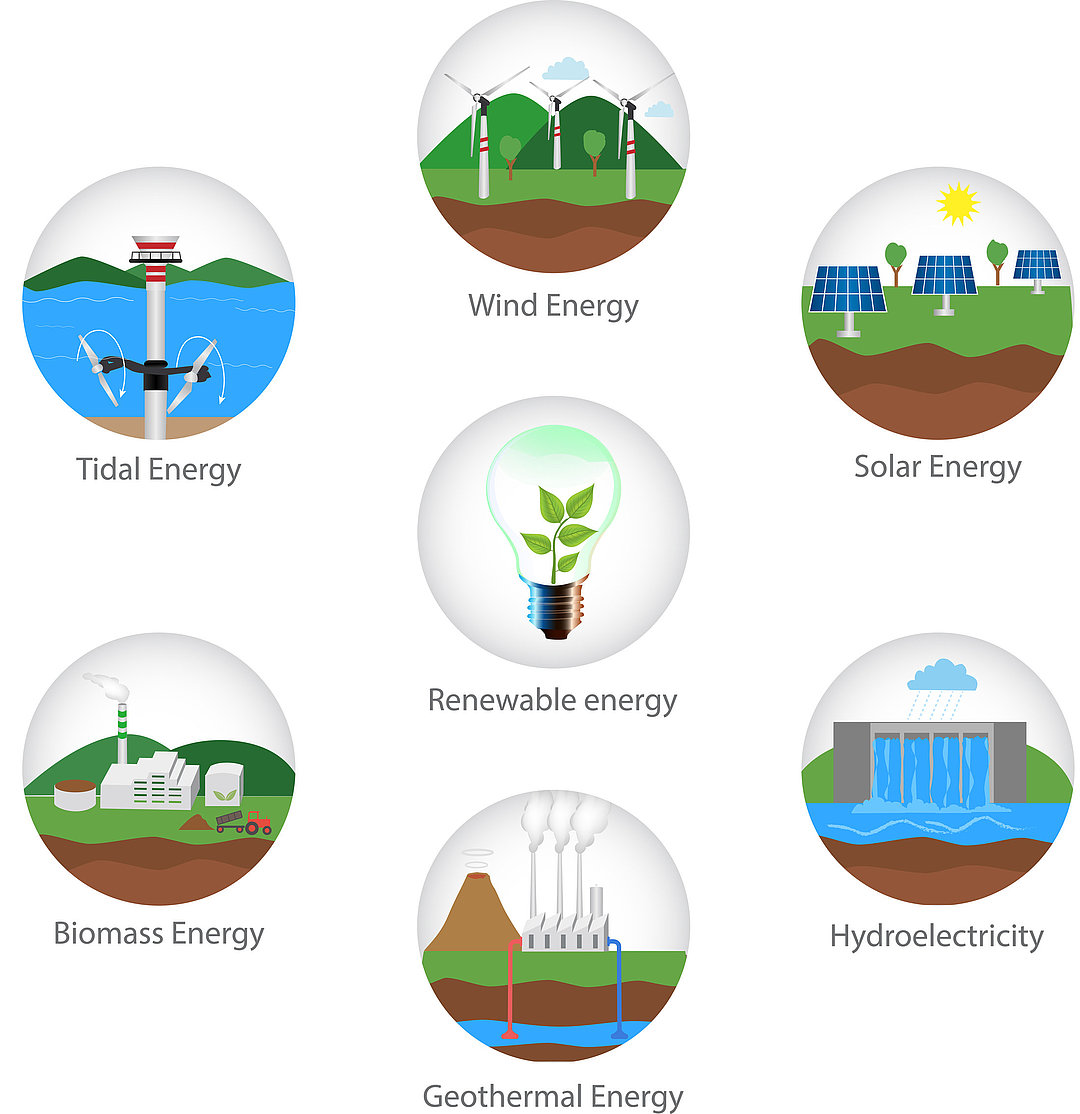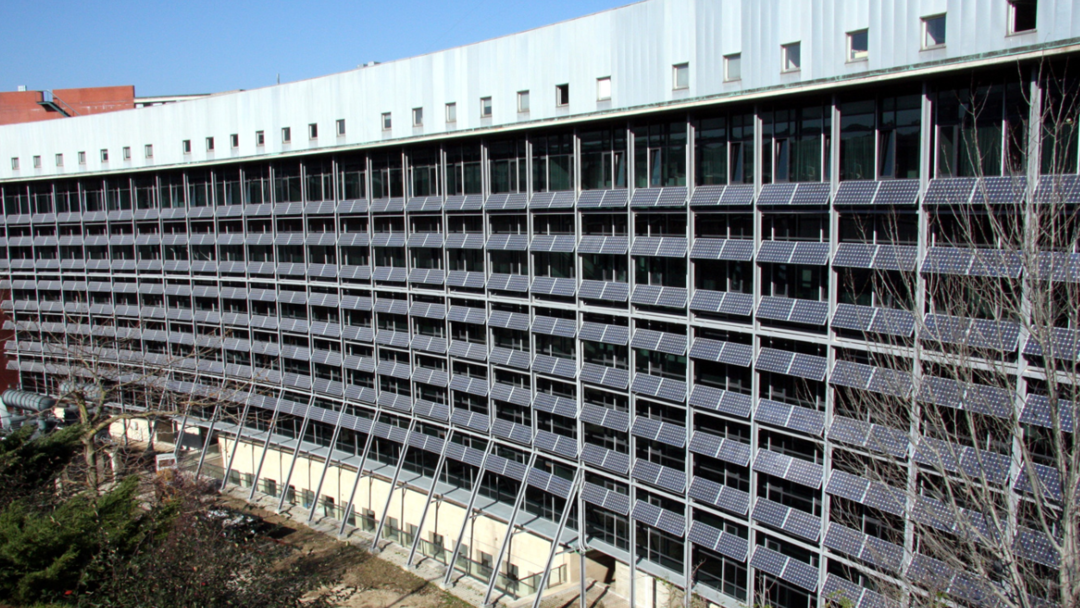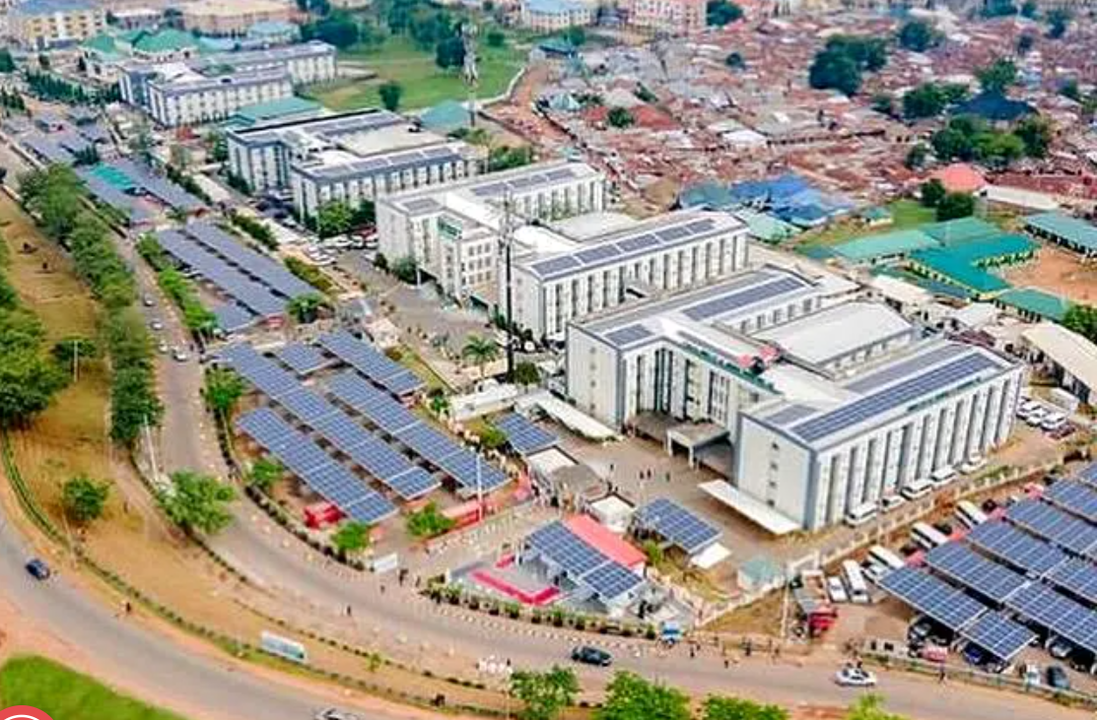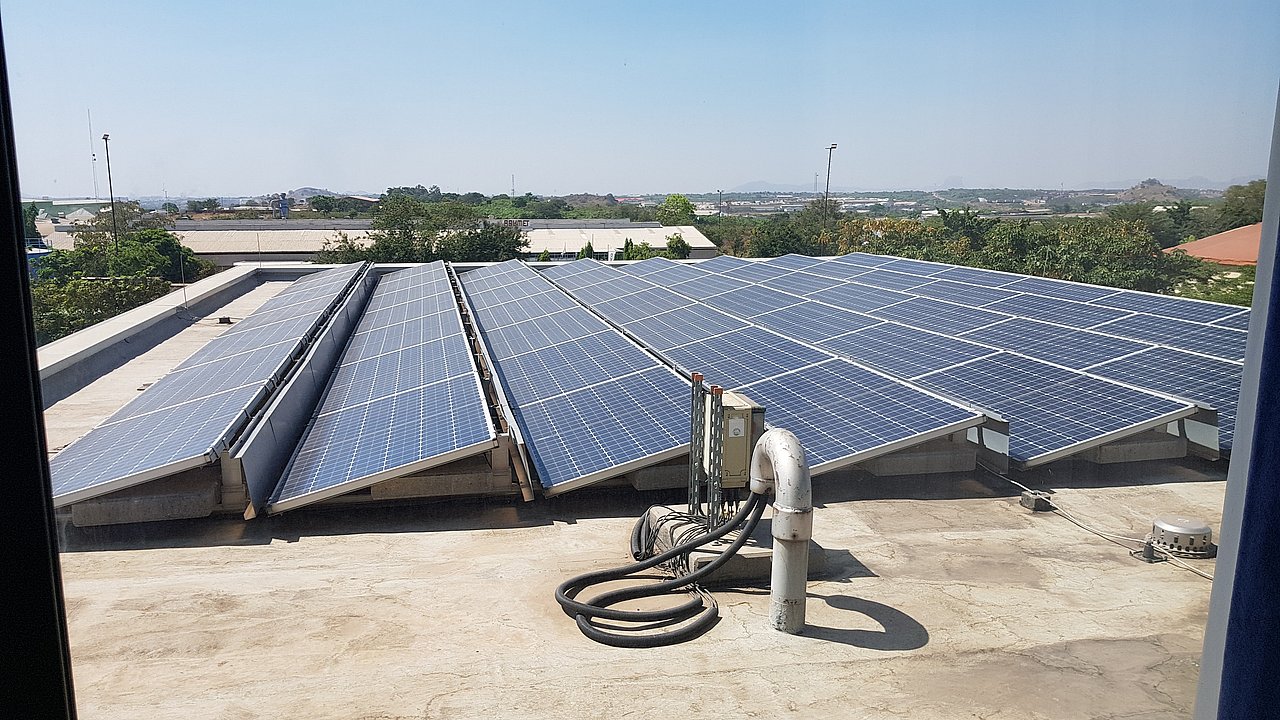
News & Happenings
Renewable Energy and the Commercial Sector
Nigeria has experienced a noticeable increase in the use of solar energy systems for residential application, street and road lighting yet the trend has yet gain steam in the commercial sector.
Renewable energy, often referred to as clean energy, is secured from natural processes that regenerate faster than they are consumed - like hydropower, solar energy, wind energy, geothermal and biomass.

Nigeria has a wealth of renewable energy potentials. If these potentials are converted into accessible and affordable energy sources, it would help mitigate the major energy challenges in the country, with wide-ranging human benefit and a positive transformational impact on the commercial sector.
The National Energy Policy of Nigeria has established guidelines for the protection of the environment in the case of exploitation of Nigerian’s fossil fuels. It encourages and emphasises the exploration of renewable and alternative energy sources. Energy stakeholders are pushing the government to not just create these policies but to lead by example and use renewable energy in their facilities. This will aid correct data collection on the savings achieved through fossil fuels and tie-in the excess generated energy back to the national grid.
Some government organisations like the Federal Ministry of Works and Housing in Lagos and Abuja have installed solar systems and others are keying into it. The Nigerian government is installing all-in-one solar lights on new and existing roads that don’t have lighting. For example: the recently installed Inner Northern Road in Abuja.
Most residential facilities are fast keying into the renewable energy solutions, especially solar systems as an alternative source of power supply, spurred on by the recent and frequent breakdown of the national grid and scarcity of fuel.
The commercial industry, despite being a major energy-consuming sector, still relies on diesel generators and fossil fuel for energy generation. The cost of maintenance and refuelling of generators is very high, with the recent hike in diesel price exacerbating the situation. This has resulted in early closures and low production on goods and services by many commercial businesses.
The commercial sector has not yet fully embraced the solar system approach to renewable energy as a main or alternative source of energy generation. So, why has it been difficult for the commercial industry to key into the renewables idea?
Firstly, the initial cost of installation is steep.
For small businesses and offices, adopting solar systems will be more effective as the requirement for lighting and small power load is roughly 2kW with minimal space requirement for batteries and solar panel installation. The initial cost of this installation may be high but has a better ROI when compared to the maintenance and running cost of the conventional sources of energy.
However, for large-scale commercial applications where the energy requirement for equipment runs into large Kilowatts, the massive amount of energy needed will be difficult to achieve because substantially more space for solar panels and large battery storage is required.
The average mid-scale commercial business requires roughly 100kVA to operate.
In regard to these challenges, there have been recommendations on how commercial buildings can adopt renewable energy and reduce the initial capital cost of such buildings by adopting a flat roof design where panels are mounted or the use of photovoltaic façade systems for buildings thereby optimising space usage.
An example of this is the Federal Ministry of Works and Housing Headquarter Building in Abuja where all the roof surfaces and car park shades use solar panel platforms, creating a 1.52 Megawatts solar power project (see picture).
To lower the cost of energy storage, commercial entities can also develop an integrated renewable energy planning and investment mini group (by proximity), where entities install their various individual systems and connect to a general grid. When it is not in use by one entity, another can utilise the power supply from the panels. This system reduces the initial cost of creating a solar farm and power is readily available to the end users. It does not have any space restriction as the closer they are to each other the more effective it is. Power collectors can be installed in small rooms in each building, reducing the costs of erecting new structures. An example of this is the façade panels of university of Cantabria, Spain (See picture).

Picture Credit: WSP
In all these, the government also has a large role to play by implementing applicable laws to support renewable energy for commercial adaptation. The non-availability of funds to carry out projects and the rather poor incentives accompanying investments have brought a halt to most projects in its infancy.
The government can assist by;
- Develop integrated renewable energy planning and investment
- Provide incentives for renewable energy uptake
- Ensure sufficient and affordable capital financing
- Improve public understanding of renewable energy
- Educate on energy use and efficiency
- Increase awareness of its sustainability
These laws may also impose zero taxes on renewable products to benefit the commercial industry. In addition, concrete deals can be made with financial institutions to increase access to capital loans, reduce interest rates and provide better investment opportunities that would ensure sufficient and affordable capital financing, therefore reducing the high degree of risks attributed to this system.
In summary, industry experts have estimated that Nigeria is sitting on an energy reserve with the potential of generating 42000 Megawatts of power from solar alone. This translates to billions of naira in returns but it can be achieved only when all entities come together to support this growing system.

